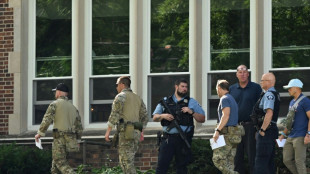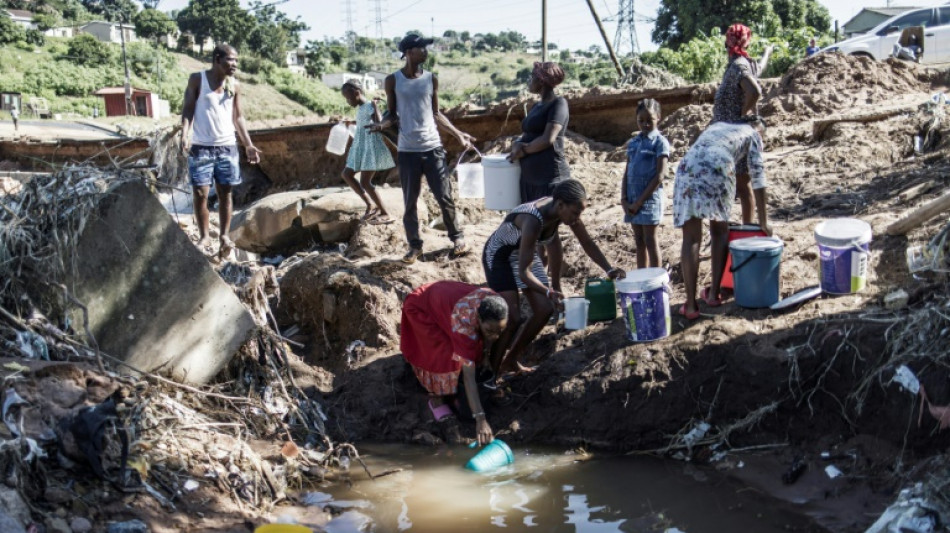
-
 Djokovic advances at US Open as Sabalenka, Alcaraz step up title bids
Djokovic advances at US Open as Sabalenka, Alcaraz step up title bids
-
Venice Film Festival opens with star power, and Gaza protesters

-
 Globetrotting German director Herzog honoured at Venice festival
Globetrotting German director Herzog honoured at Venice festival
-
Djokovic fights off qualifier to make US Open third round

-
 Duplantis, Olyslagers seal Diamond League final wins
Duplantis, Olyslagers seal Diamond League final wins
-
Israel demands UN-backed monitor retract Gaza famine report
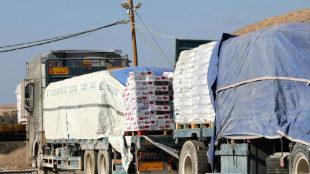
-
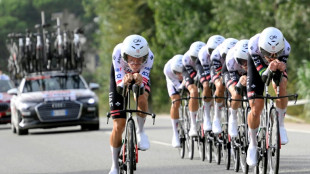 Vingegaard reclaims lead as UAE win Vuelta time trial
Vingegaard reclaims lead as UAE win Vuelta time trial
-
Shooter kills 2 children in Minneapolis church, 17 people injured

-
 Defence giant Rheinmetall opens mega-plant as Europe rearms
Defence giant Rheinmetall opens mega-plant as Europe rearms
-
Van Gogh Museum 'could close' without more help from Dutch govt

-
 Indonesia's Tjen exits US Open as Raducanu moves on
Indonesia's Tjen exits US Open as Raducanu moves on
-
Trump administration takes control of Washington rail hub
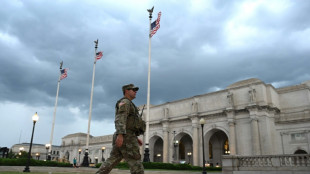
-
 Stock markets waver ahead of Nvidia earnings
Stock markets waver ahead of Nvidia earnings
-
Conservationists call for more data to help protect pangolins

-
 US Ryder Cup captain Bradley won't have playing role
US Ryder Cup captain Bradley won't have playing role
-
French star chef to 'step back' after domestic abuse complaint

-
 Rudiger returns, Sane dropped for Germany World Cup qualifiers
Rudiger returns, Sane dropped for Germany World Cup qualifiers
-
S.Africa calls US welcome for white Afrikaners 'apartheid 2.0'

-
 'Resident Evil' makers marvel at 'miracle' longevity
'Resident Evil' makers marvel at 'miracle' longevity
-
Denmark apologises for Greenland forced contraception

-
 Hungary web users lap up footage of PM Orban's family estate
Hungary web users lap up footage of PM Orban's family estate
-
Alexander Isak selected by Sweden despite Newcastle standoff

-
 Italy's Sorrentino embraces doubt in euthanasia film at Venice
Italy's Sorrentino embraces doubt in euthanasia film at Venice
-
Trump urges criminal charges against George Soros, son

-
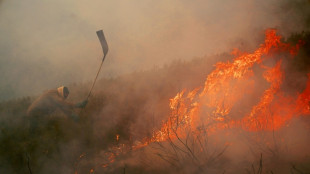 Wildfires pile pressure on Spanish PM
Wildfires pile pressure on Spanish PM
-
Stock markets mixed ahead of Nvidia earnings

-
 Football's loss as hurdles sensation Tinch eyes Tokyo worlds
Football's loss as hurdles sensation Tinch eyes Tokyo worlds
-
Pakistan blows up dam embankment as it braces for flood surge
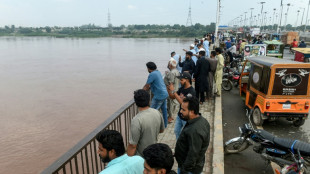
-
 Lego posts record sales, sees market share growing further: CEO
Lego posts record sales, sees market share growing further: CEO
-
France overlook Ekitike for World Cup qualifiers, Akliouche called up

-
 Rain no obstacle, Lyles insists ahead of Diamond League finals
Rain no obstacle, Lyles insists ahead of Diamond League finals
-
Almodovar urges Spain cut ties with Israel over Gaza

-
 Macron gives 'full support' to embattled PM as crisis looms in France
Macron gives 'full support' to embattled PM as crisis looms in France
-
Stock markets diverge awaiting Nvidia earnings

-
 German cabinet agrees steps to boost army recruitment
German cabinet agrees steps to boost army recruitment
-
Denmark summons US diplomat over Greenland 'interference'
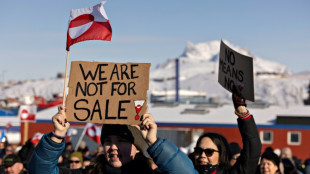
-
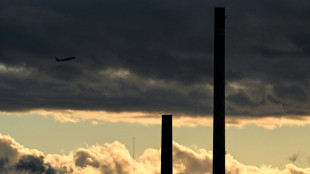 German factory outfitters warn of 'crisis' from US tariffs
German factory outfitters warn of 'crisis' from US tariffs
-
Israel ups pressure on Gaza City as Trump eyes post-war plan
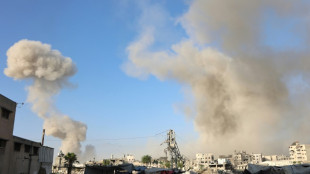
-
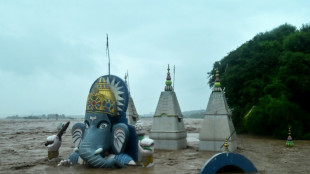 Floods, landslides kill at least 30 in India's Jammu region
Floods, landslides kill at least 30 in India's Jammu region
-
Former player comes out as bisexual in Australian Rules first

-
 Indian spin great Ashwin calls time on IPL career
Indian spin great Ashwin calls time on IPL career
-
India faces world football ban for second time in three years
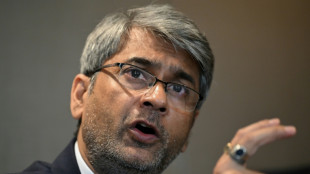
-
 Globetrotter Herzog to get special Venice award
Globetrotter Herzog to get special Venice award
-
'Old things work': Argentines giving new life to e-waste

-
 Showtime for Venice Film Festival, with monsters, aliens, Clooney and Roberts
Showtime for Venice Film Festival, with monsters, aliens, Clooney and Roberts
-
Thai woman jailed for 43 years for lese-majeste freed

-
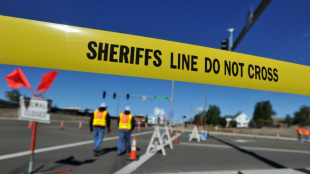 What is swatting? Shooting hoaxes target campuses across US
What is swatting? Shooting hoaxes target campuses across US
-
Row over Bosnia's Jewish treasure raising funds for Gaza

-
 Police search Australian bush for gunman after two officers killed
Police search Australian bush for gunman after two officers killed
-
NZ rugby player who suffered multiple concussions dies aged 39


What's behind South Africa's flood disaster
South Africa, the continent's most industrialised country, has largely escaped the tropical cyclones that regularly hit its neighbours.
But last week, storms pummelled the east coast city of Durban, triggering heavy floods and landslides that killed more than 440.
Here are the main questions behind the floods and devastation.
- Did climate change play a role -
Meteorologists say the storms were not tropical.
Instead, the rains were part of a normal South African weather system called a "cut-off low" which can bring heavy rain and cold weather.
"Cut-off low pressure systems are common. Their frequency becomes high during autumn and spring seasons, and they are differing in strength," said Puseletso Mofokeng with the South African Weather Service.
Some of these systems are very intense, causing heavy rain, hail, strong and potentially damaging winds and heavy snowfall.
A cut-off low in April 2019 killed 85 people in Eastern Cape and KwaZulu-Natal provinces.
If the storm system itself is a known phenomenon, the difference this time was the intensity of the the deluge.
Here, experts point the finger at climate change -- warmer seas charge the atmosphere with more moisture, which then gets dumped as rainfall.
"We've seen in Durban three (severe) floods in less than 10 years. Does it have to do with climate change? Definitely," said Mary Galvin of the University of Johannesburg.
"We are feeling the impact of what will certainly be unpredictable, more frequent, severe and extreme weather events."
A recent UN report says what was once considered a one-in-a-hundred-year flood event could end up happening several times a year by 2050.
- Why is Durban prone to floods? -
Durban experiences floods every year, but not as severe as these.
The city is built on a hilly area with many gorges and ravines -- a topography that University of KwaZulu-Natal urban planner Hope Magidimisha-Chipungu says is conducive to floods.
If the soil is not properly "stabilised in the hilly areas, it's obvious you were going to have landslides," she said.
Some have suggested Durban's storm-water drainage system may not have been well maintained, which authorities of the 187-year-old city dispute.
Durban city is not alone in experiencing extreme weather conditions in South Africa.
Along the west coast, Cape Town almost ran out of water in a 2018 drought.
"Climate predictions and all models show wet areas will get wetter and dry areas will get dryer. So Durban... unfortunately will be wetter," said Galvin.
- What about planning? -
Durban is one of South Africa's fastest-growing cities, with economic growth outpacing the national average by 2015.
Massive, unplanned migration created housing shortages, which resulted in the mushrooming of shack dwellings, locally called informal settlements.
"The ways in which South African cities were designed were very exclusionary in nature," said planner Magidimisha-Chipungu.
"The spatial planning and the apartheid legacy (placed) the urban poor in the periphery and in the low-lying areas" along riverbanks, she said.
Around a quarter of the metro's 3.9 million people live in 550 informal settlements around the city. At least 164 of them were built on floodplains, according to Galvin.
A host of recent crises have further sapped resources -- the coronavirus pandemic, massive unemployment and riots and looting that erupted last year.
It's "like the seven plagues" happening in succession, said Galvin.
I.Meyer--BTB

